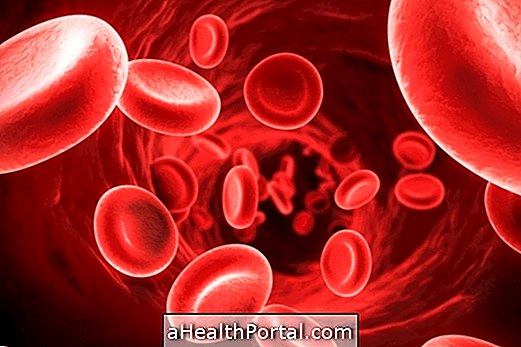Melatonin is a hormone naturally produced by the body that has as its main regular function and improve the quality of sleep. In addition, melatonin promotes the proper functioning of the body and acts as an antioxidant, being able to regenerate epithelial cells exposed to excessive ultraviolet radiation, for example, and neuronal, as in the case of ischemia.
This hormone is produced by the pineal gland, which is only activated when there are no light stimuli, that is, the production of melatonin only occurs at night, thus stimulating sleep. That is why it is important to avoid brightness, sound or aromatic stimuli that can accelerate metabolism and decrease the production of melatonin. Generally, melatonin production decreases with aging and it is, therefore, that sleep disorders are more common in adults or the elderly.
Melatonin costs around $ 50, but may vary depending on the concentration of melatonin per capsule, brand and place of purchase.

What is melatonin used for?
Melatonin is a hormone that in addition to regulating sleep, has other health benefits, can help control the production of female sex hormones, has antioxidant effect in cells and strengthens the immune system, helping to prevent various diseases and control diseases psychological and nervous system related.
Thus, in addition to treating insomnia, melatonin may be indicated to aid in the treatment of menopause, migraine fibromyalgia, breast and prostate cancer, Alzheimer's and ischemia, for example.
The production of melatonin decreases over time, either due to age or due to constant exposure to light and visual stimuli. Thus, melatonin can be consumed as a supplement, such as Melatonin, or medications, such as Melatonin DHEA, which should be recommended by a medical specialist, so that sleep and other functions of the body are regulated. Learn more about melatonin supplement Melatonin.
How to take melatonin
Melatonin supplementation should be prescribed by a neurologist or sleep disorder specialist and ingestion of melatonin 3 mg or melatonin 5 mg at least 1 hour before bedtime may be recommended. This supplement may be indicated to treat migraine, to fight tumors and, more often, insomnia. The use of melatonin during the day is not usually recommended, as it can deregulate the circadian cycle, that is, it can make the person feel very sleepy during the day and little during the night, for example.
Although it is a hormone produced naturally by the body, the use of the melatonin supplement can cause some side effects such as headache, nausea and even depression. Therefore, the use of melatonin supplement should be recommended and accompanied by a medical specialist. See what are the side effects of melatonin.
A good alternative to increase the concentration of melatonin in the body is to consume foods that contain this hormone, helping to sleep, such as brown rice, bananas, nuts, orange and spinach, for example. Get to know other foods best suited for insomnia.
Here's a recipe for some of the foods that help you fall asleep:

























